
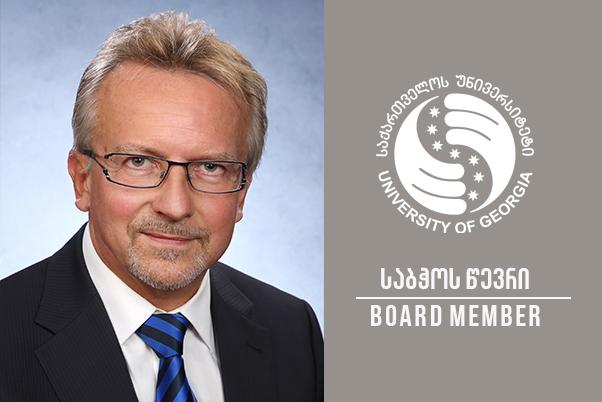
Dr. Karl-Heinz Kamp is the Special Envoy of the Political Director at the German Ministry of Defence. He studied History and Political Sciences in Bonn and holds a Ph.D. from the University of the German Armed Forces, Hamburg with a dissertation on NATO’s nuclear planning procedures. He started his career in 1986 at the German Council of Foreign Affairs (DGAP) in Bonn. In 1988, he has been Research Fellow with the Center for Science and International Affairs (CSIA), John F. Kennedy School of Government, Harvard University, USA. In September 1988, he joined the Konrad Adenauer Foundation in Bonn, where he became Head of the Foreign- and Security Policy Research Section in 1992 and later the Director of its International Planning Staff. From 2003 to 2007, he was the Security Policy Coordinator of the Foundation in Berlin. From 1997 to 1998, Dr. Kamp was on a temporary assignment with the Planning Staff of the German Ministry of Foreign Affairs and in 1999, he taught at the Institute for Political Science at the University of Cologne. From November 2007 to October 2013, he served as the Research Director of the NATO Defense College (NDC) in Rome to build up NATO's Research Division. In 2009, Secretary Madeleine Albright selected him as one of the Advisors for the NATO Expert Group on the New Strategic Concept. In November 2013, he joined the Federal Academy for Security Policy in Berlin (BAKS) – first as Academic Director and later as the President of this institution. In October 2019, he moved to the German Ministry of Defence to become the Special Envoy of the Political Director of the MoD. Since 2016, he is also the co-editor of the strategic journal “Sirius” and he published more than 400 articles on security policy issues in books and journals – including Foreign Policy, Financial Times, Survival, Frankfurter Allgemeine, International New York Times, Washington Quarterly, Internationale Politik, Neue Zuercher Zeitung and Wall Street Journal.
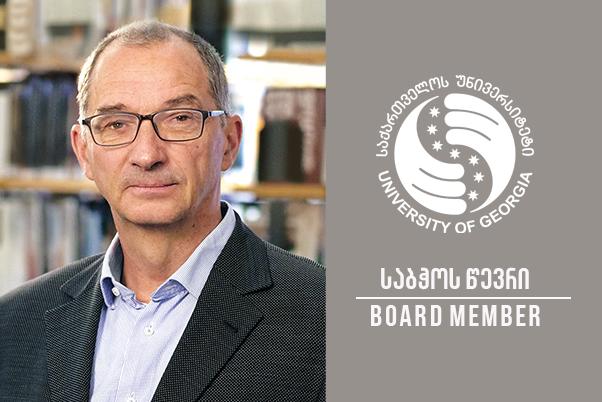
Dr. Matthias Dembinski, Senior Researcher at Peace Research Institute Frankfurt. Dr. Matthias Dembinski Is a Doctor of Philosophy, Department of International Relations, Johann Wolfgang Goethe University Frankfurt, June 1989. Dr. Matthias Dembinski was a Researcher at the Stiftung Wissenschaft und Politik (Ebenhausen), 1994 – May 1996. Researcher at the Peace Research Institute Frankfurt 1992 – 1994. Research Fellow at the Center for Science and International Affairs, Harvard Kennedy School, August 2001 – July 2002. Researcher at the Peace Research Institute Frankfurt 1989-1991. Various lecture courses and seminars in the field of International Relations and EU studies since 1998. Co-leader of a research project financed by the Leibniz-Society on “Drifting Apart: International Institutions in Crisis and the Management of Dissociation Processes“ (2019 -2022) Co-leader of a research project financed by the Deutsche Stiftung Friedensforschung on the effects of humanitarian military interventions (2015-2016) Leader of a project on regional security organizations as building blocs of global governance, financed by the Frankfurt University Cluster Normative Orders (2013). Leader of a research project financed by the Deutsche Stiftung Friedensforschung on “The International Organization of the Democratic Peace” (in cooperation with the University of Tübingen), (2005-2007) He is the author of various publications here is Five key publications: Matthias Dembinski & Dirk Peters (2019): ‘The Power of Justice. How Procedural Justice Concerns Affect the Legitimacy of International Institutions’, Global Governance, 25(1):149-170. Matthias Dembinski (2017): ‘Procedural justice and global order: Explaining African reaction to the application of global protection norms’, European Journal of International Relations, 23(4) 809-832. Matthias Dembinski & Jutta Joachim (2014): ‘Civil society and the European common security and defence policy’, European Security, European Security 23 (4) 449-465. Matthias Dembinski & Berenike Schott (2013): ‘Converging Around Global Norms? Protection of Civilians in African Union and European Union Peacekeeping in Africa’, African Security, 6 (3-4) 276-296. Matthias Dembinski et. al. (2011), ‘Democracy, Regional Security Institutions, and Rivalry Mitigation: Evidence from Europe, South America, and Asia’, Security Studies, 20, 378-415.
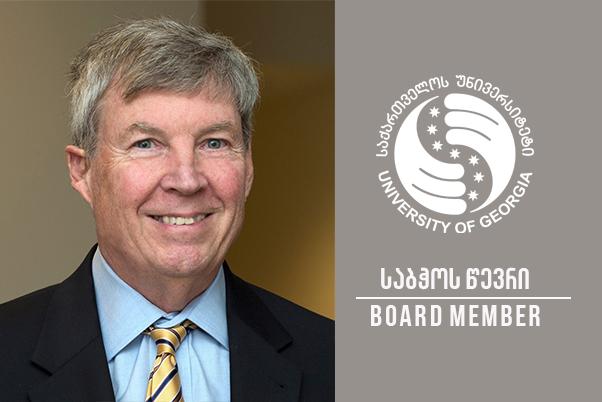
Dr. William Courtney is an adjunct senior fellow at the nonprofit, nonpartisan RAND Corporation and executive director of the RAND Business Leaders Forum, and he chairs the board of trustees of Eurasia Foundation. A corporate executive from 2000 to 2014, he retired from Computer Sciences Corporation as senior principal for federal policy strategy. From 1972 to 1999 he was a foreign service officer in the U.S. Department of State, and served as ambassador to Kazakhstan, Georgia, and the U.S.-Soviet Commission to implement the Threshold Test Ban Treaty. He served abroad in Brasilia, Moscow, Geneva, Almaty, and Tbilisi. He is a member of the Council on Foreign Relations, the American Academy of Diplomacy, and the Cosmos Club. He graduated from West Virginia University with a B.A. and Brown University with a Ph.D. in economics. He is married and has two adult children.
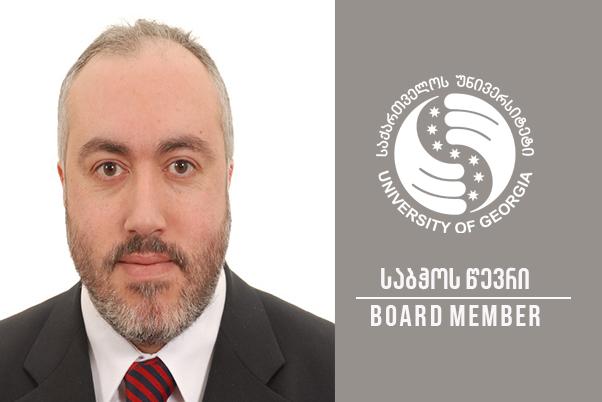
Ambassador Temuri Yakobashvili has distinguished himself as a senior leader in government, international diplomacy, crisis management and negotiations, institution building, strategic planning, policy crafting, and leadership development. Ambassador Yakobashvili is a founder and president of the TY Strategies LLC, boutique consulting firm specializing in advising governments, non-government institutions and business communities in the U.S., Europe and Eurasia. Prior he served as an Executive Vice President of PASS LLC, global social impact consultancy. In 2014 he founded and lead Washington DC based New International Leadership Institute, non-for profit organization, dedicated to reforms, good governance and anti-corruption. Up to fall of 2014, he held position of the Senior Transatlantic Fellow at the German Marshall Fund of the US. From early February 2011 to March 2013 he served as an Ambassador of Georgia to the United States. Prior to his posting, he was a Deputy Prime Minister and State Minister for Reintegration in the Government of Georgia. Ambassador Yakobashvili is a career diplomat who joined the Ministry of Foreign Affairs of Georgia in 1991 and held various positions, including that of a Director of the Department for USA, Canada and Latin America. He holds a diplomatic rank of Ambassador Extraordinary and Plenipotentiary granted by the President of Georgia. He is a graduate of the Department Physics from the Tbilisi State University. In 1998 he was trained on Mid-career Diplomatic Courses at the Center of Political and Diplomatic Studies at Oxford University. He is a Yale World Fellow (2002) and in 2004 participated in the Executive Security Program at Harvard University’s Kennedy School of Government. 2006 he was visiting researcher at the Silk Road Study Center of Uppsala University, Sweden. Ambassador Yakobashvili co-founded and has served as an Executive Vice-President of the Georgian Foundation for Strategic and International Studies (GFSIS), leading think tank in the Caucasus region. Now he chairs the Governing Board of the GFSIS. He also co-founded the Atlantic Council of Georgia, as well as the Council of Foreign Relations of Georgia. He serves in the Governing Boards of following institutions: Georgian Institute of Public Affairs (GIPA), the Europe House of Georgia, US-Ukraine Foundation and PASS LLC. Frequently contributes to international printed and digital media on issues of regional security and transformation. On February, 2012 Ambassador Yakobashvili was decorated with Presidential Medal of Excellence. He is married to Ms. Yana Fremer; they have two children, George and Miriam. Speaks Georgian, English, Russian and Hebrew.
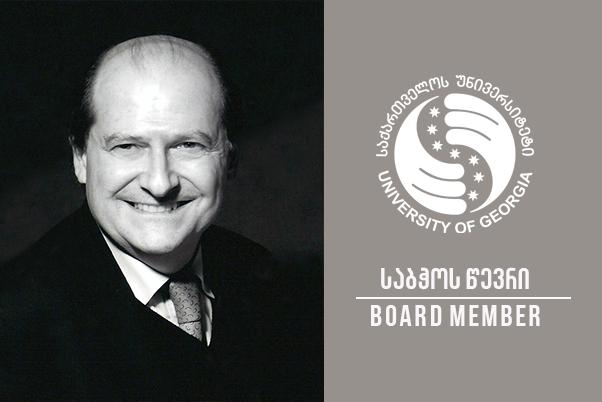
Prof. Mario Telo born in 1950, in Cremona, Northern Italy. Bachelor in Florence, Master in history of Political thought (Diploma di specializzazione, 1978) in Rome-Sapienza, Doctor in philosophy, Florence University, Researcher in political sociology, followed by the Italian titles of Associated professor and Professore ordinario (in History of political thought). Telò was Professor at the Université Libre de Bruxelles since 1986/87, “J. Monnet Chair ad personam” since 1994 (courses of International relations, Comparative politics, European integration, History of political thought). He is also a former Director of the political studies Department of the IEE-ULB (1989-2004), and President of the Master in European politics. From 2005- to 2009, worked as the President of the Institute for European Studies, ULB, then Vice-President of the same Institute (2009-2015), as well as the director of the PhD School in EU studies, ULB and of the Erasmus mundus PhD school GEM (2000-2020) . Prof. Telo is currently Emeritus ULB and Professor of EU integration at the Department of political science, LUISS-Rome, of Comparative regionalism at the LUISS School of Government and of Regionalism and Global governance at the Master EU studies IEE-ULB. He was elected as member of the Royal academy of sciences since 2006, Scientific responsible for the Royal Academy of sciences “Rencontres internationales”, Brussels. Prof. Telo is author of numerous publications, more than 40books and 200 academic articles.
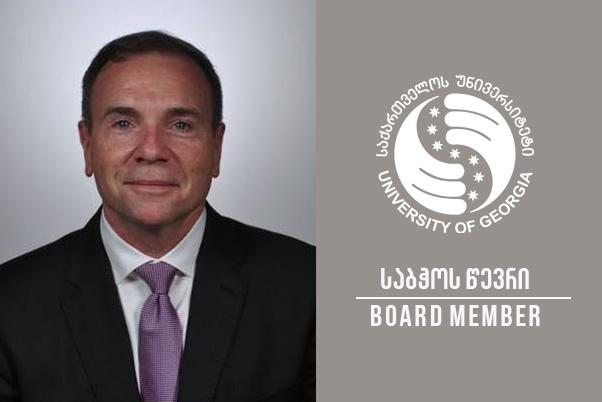
Lieutenant General (Retired) Hodges holds the Pershing Chair in Strategic Studies at the Center for European Policy Analysis. A native of Quincy, Florida, Lieutenant General (Retired) Frederick Benjamin "Ben" Hodges graduated from the United States Military Academy in May 1980 and was commissioned in the Infantry. After his first assignment as an Infantry Lieutenant in Germany, he commanded Infantry units at the Company, Battalion and Brigade levels as the 101st Airborne Division and in Operation IRAQI FREEDOM. He also served in an operational assignment as Director of Operations, Regional Command South, in Kandahar, Afghanistan. Lieutenant General (Retired) Hodges has also served in a variety of Joint and Army Staff positions to include Tactic Instructor at the Infantry School; Chief of Plans, 2nd Infantry Division in Korea; Aide-de-Camp to the Supreme Allied Commander Europe; Army Congressional Liaison Officer; Task Force Senior Observer-Controller at the Joint Readiness Training Center, Fort Polk, LA: Coalition/Joint – 3 (CJ3) of Multi-National Corps-Iraq in Operation IRAQI FREEDOM; Chief of Staff, XVIII Airborne Corps at Fort Bragg; and Director of the Pakistan Afghanistan Coordination Cell on the Joint Staff, Chief of Legislative Liaison for the United States Army, and Commander, NATO Allied Land Command. His last Military assignment was as Commander, United States Army Europe from 2014 to 2017.